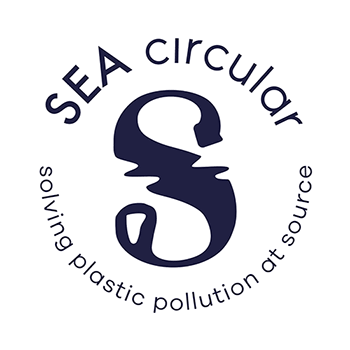
Singapore is a member country of COBSEA and a knowledge partner country for SEA circular. SEA circular is working closely with the National University of Singapore to develop research efforts and science in the region, such as the research on pollution from marine plastics in South-East Asia and East Asia (ASEAN+3).
Causes and challenges
Singapore is waging a battle against the increasing consumption of plastics – plastic bags, disposables, and polyethylene terephthalate (PET) bottle use. The island state is estimated to use about 1.76 billion plastic items each year, according to the Singapore Environment Council’s position paper published in 2018. This includes 820 million plastic bags from supermarkets, 467 million PET bottles and 473 million plastic disposable items like takeaway containers. This waste generation is exacerbated by the low recycling rates, at 6% in 2017 (Dept. of Statistics, Singapore 2017), reinforced by the general lack of awareness about recycling about by the public.
The environmental impacts of plastic waste are increasing – alongside detrimental effects on the economy. In 2019, the country’s Resource Sustainability Bill was passed to provide regulatory teeth for the government to implement measures to reduce waste from three key streams: electronic waste, food waste and packaging waste.
Singapore’s domestic recycling rate is low. In comparison, the industrial sector recycled 74 per cent of its waste last year. Among the reasons for the poor domestic recycling rate is the contamination of recyclables, which occurs when food or other waste is thrown into recycling bins, and segregation is inefficient.
Increasing plastic waste is generated due to levels of consumption and a culture of convenience – deliveries and take-out meals are commonplace. This is combined with relatively low awareness about recycling.
Ways forward
Singapore is at the forefront in implementing various initiatives to manage the domestic waste generated, from building waste-to-energy plants to investing heavily in waste management infrastructure. Singapore is exploring the establishment of local e-waste recycling facilities, and is also financing research into plastic recycling solutions and technologies, and their suitability for Singapore.
In 2019, Singapore passed the Resource Sustainability Bill, part of the government’s zero-waste initiatives. The bill mandates a system-level approach to enable nation-wide reuse and recycling, establishes the mandatory reporting framework for packaging beginning 2020.
Businesses will be required to annually report on types and amounts of packaging materials they bring into the market and their packaging waste reduction plans. The aim is bring greater awareness to companies on the potential for waste reduction and spur them to take action to reduce use and waste in their business operations. The data from this mandatory reporting will lay the foundation for an Extended Producer Responsibility (EPR) Framework for managing packaging waste in Singapore, which is targeted for 2025.
Download SEA circular Country Profile for Singapore for more information

